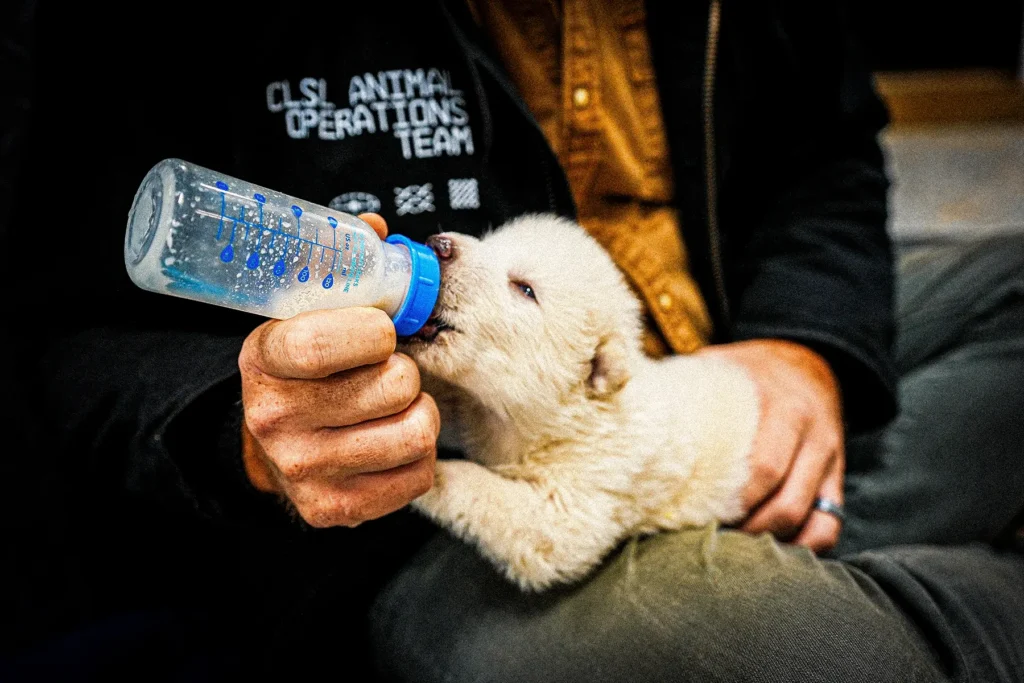From certain angles, the white canids on the video call, chewing on branches in the grass, look like Samoyeds: huge, white, fluffy faces and big black noses. Just when you start considering what it might feel like to wrap your arms around them and bury your face in the five-inch deep fur around their necks, they lower their gaze and you can see just how long and pointed their snout is — the better to follow Ice-Age scent trails — and how their big golden eyes are set low and forward on the front of their head, partway down the slant of their nose, the better for these carnivorous hunters to target their prehistoric prey.
Just then, a sound off camera startles the pups and they bolt towards the tree line, scattering like deer across a meadow — if deer had broader shoulders, long fluffy tails, and paws the diameter of softballs and still growing. They quickly settle down to continue gnawing on sticks, but the reminder of their power and wildness lingers. These aren’t dogs, or even modern-day wolves. They’re dire wolf pups, back from extinction after some 12,000 years.
If you thought dire wolves were the stuff of Game of Thrones lore, you’re not alone. It’s an assumption George R. R. Martin himself repeatedly needs to correct. “You’d be surprised at how many people seem to think I invented the dire wolf,” he tells Rolling Stone. “Much as I would love to take credit for that, it’s just not so. Dire wolves were real, one of the apex predators of the Ice Age.”
The modern dire wolves, Romulus and Remus, born in October, plus a third, younger pup, Khaleesi, born in January, are the results of efforts by bioscience startup Colossal, which launched in 2021. You may know the company for recently producing headline-grabbing and objectively adorable woolly mice as part of their cornerstone effort to bring back the woolly mammoth, but Colossal’s dire wolf project has since outpaced the mammoth, thanks to an abundance of science — both genetic and reproductive — available about dogs compared to elephants.
To Learn More Click Here



